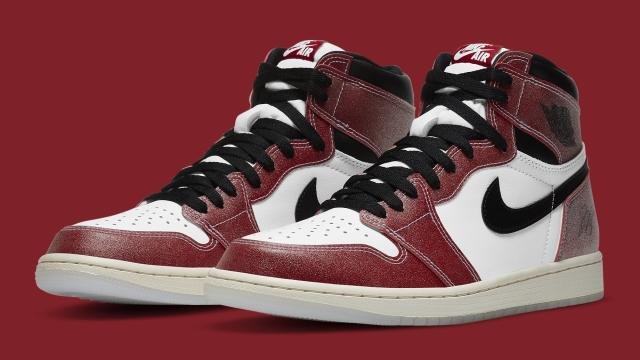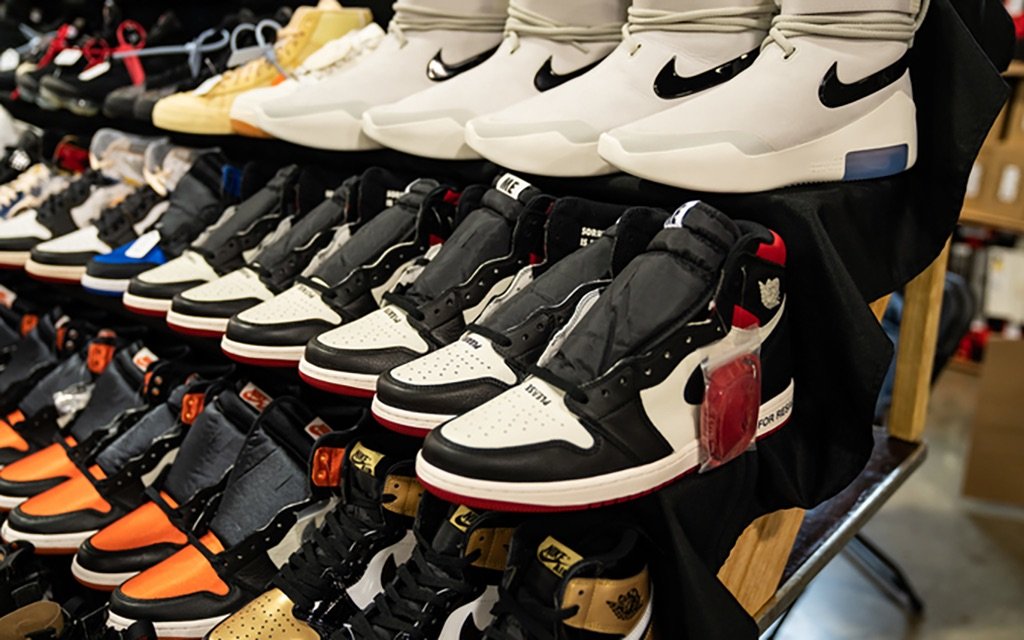To Resell Or Not To Resell? The Benefits And Drawbacks Of Sneaker Reselling
A Look Into Sneaker Reselling
Discover the fascinating world of sneaker reselling in this balanced article that looks at both the pros and cons of reselling, while also providing insights into the industry's growth, top resale platforms, and the most popular sneakers for resale.
What Is Reselling?
Sneaker reselling has become a thriving industry, with avid collectors and investors driving up demand for limited edition, high-end athletic footwear. At its core, sneaker reselling involves purchasing rare or sought-after sneakers at retail prices, and then reselling them at a markup through online marketplaces, consignment shops, or hand-to-hand transactions.
While some see sneaker reselling as a lucrative investment opportunity or a way to obtain coveted items that may have otherwise been unattainable, others criticize it for driving up prices and contributing to a culture of exclusivity.
In this post, we'll explore the pros and cons of the sneaker resale market, examine some of the most popular sneakers for reselling, and provide relevant statistics and data to help readers gain a better understanding of this evolving industry.
5 SNEAKER RESELLING TIDBITS
The resale value of sneakers can vary widely depending on the model, condition, and rarity. In some cases, sneakers have been resold for as much as 10 times their original retail price.
According to a survey by Hypebeast, 63% of sneakerheads have purchased sneakers from a reseller at least once.
The rise of sneaker reselling has led to the creation of specialized resale platforms such as StockX, GOAT, and Stadium Goods, which have gained significant popularity in recent years.
In 2020, the most expensive sneaker ever sold at auction was a pair of Nike Air Jordan 1s worn by Michael Jordan during a game in 1985. The sneakers sold for a record-breaking $615,000.
The COVID-19 pandemic has had a significant impact on the sneaker reselling market, with some resellers reporting decreased demand and lower prices due to economic uncertainty and changing consumer behavior.
Considering The Pros Of Sneaker Reselling
While sneaker reselling has its fair share of drawbacks that we’ll cover later, there are also several benefits to participating in this market. From access to exclusive products to investment opportunities, sneaker reselling offers a range of advantages that make it an attractive option for collectors, investors, and enthusiasts alike. In this section, we'll explore four key pros of sneaker reselling, highlighting how this industry can be both personally and financially rewarding.
Increased accessibility
By purchasing sneakers from resellers, collectors and enthusiasts can access limited edition and rare sneakers that may have been otherwise unattainable. Resale platforms like StockX and GOAT offer a secure and trustworthy way to buy and sell sneakers, ensuring that buyers receive authentic and high-quality products.
Investment Opportunities
In addition to the potential for personal enjoyment, sneaker reselling can also be a profitable investment opportunity. The resale market for sneakers has grown significantly in recent years, with some limited edition releases selling for thousands of dollars. This has attracted investors who see the potential for significant returns on their purchases. According to a report by Business Insider, the sneaker resale market is estimated to be worth $2 billion and is projected to grow to $6 billion by 2025.
Community Building
The sneaker community is a tight-knit group of enthusiasts who share a passion for sneakers and sneaker culture. By participating in sneaker reselling, individuals can become a part of this community and connect with others who share their interests. This can be particularly valuable for those who may not have access to a local community of sneakerheads.
The Nike Air “Mag” is one of the most interesting and coveted footwear pieces of all-time.
Spotlighting The Cons of Sneaker Reselling
While there are certainly advantages to sneaker reselling, there are also a number of downsides that should be considered before entering this market. From high costs and risks to ethical concerns, sneaker reselling comes with a range of challenges that can make it a difficult industry to navigate. In this section, we'll explore four of the most significant cons of sneaker reselling, shedding light on the potential pitfalls of this popular market.
Exclusion of average consumers:
One of the biggest negative effects of sneaker reselling is that it can make it harder for average consumers to purchase the latest releases at retail prices. Sneaker resellers often use bots and other tactics to purchase large quantities of sneakers and then resell them at inflated prices, which can be frustrating for consumers who genuinely want to buy and wear the sneakers, but cannot afford the high resale prices.
Increased focus on hype and exclusivity:
Sneaker reselling has led to an increased focus on hype and exclusivity in sneaker culture. Sneaker companies are now more likely to release limited-edition or highly-coveted sneakers in small quantities, which creates a sense of exclusivity and drives up demand. This focus on hype and exclusivity can lead to a lack of focus on the actual design and quality of the sneakers.
Unethical and illegal activities:
he hype and exclusivity created by sneaker reselling has led some people to engage in unethical or illegal activities, such as counterfeiting or theft. This has had a negative impact on the reputation of sneaker culture as a whole, and has led some to question whether the focus on exclusivity and limited editions is healthy for the industry.
Negative impact on the environment:
The sneaker industry as a whole is notorious for its negative impact on the environment, and the sneaker reselling market only adds to this problem. The production and transportation of limited-edition sneakers often results in a significant carbon footprint, and the resale market can lead to even more sneakers being produced and transported, which only exacerbates the problem.
The Air Jordan 1 “Trophy Room” was regarded as one of the hardest sneakers to purchase for retail when it originally released, with pairs reselling for well above $1k before and after the release.
Popular Sneakers To Resell In Recent Years
Generally, limited edition or rare sneakers from popular brands like Nike, Adidas, and Jordan tend to be the most popular among sneaker resellers. Here are a few examples of popular sneakers that are frequently resold:
Nike Air Jordan 1: A classic basketball shoe originally released in 1985, the Air Jordan 1 is a staple in the sneaker world. Its timeless design and limited edition releases make it a popular choice for collectors and investors alike.
Adidas Yeezy Boost 350: Designed in collaboration with Kanye West, the Yeezy Boost 350 has been one of the most sought-after sneakers since its release in 2015. Its minimalist design and limited availability have made it a popular choice for resellers
Nike Dunk SB: Originally designed for skateboarding, the Nike Dunk SB has become a popular choice for collectors and resellers alike. Its various collaborations with designers and artists have made it a must-have item for sneakerheads.
Air Jordan 4 Retro: Originally released in 1989, the Air Jordan 4 Retro has been re-released in various limited edition colorways. Its classic design and association with Michael Jordan make it a popular choice for collectors and fans of basketball history.
Final Thoughts
As the sneaker resale market continues to grow and evolve, it raises important questions about the intersection of commerce, culture, and consumerism. While sneaker reselling can offer access to exclusive products and investment opportunities, it also perpetuates a system of inflated prices and artificial scarcity. As consumers, it's important to consider the impact of our choices on both the industry and wider society.
So, we ask you: What role do you believe sneaker reselling should play in our consumer landscape, and how can we ensure that it benefits everyone involved, rather than just a select few?






